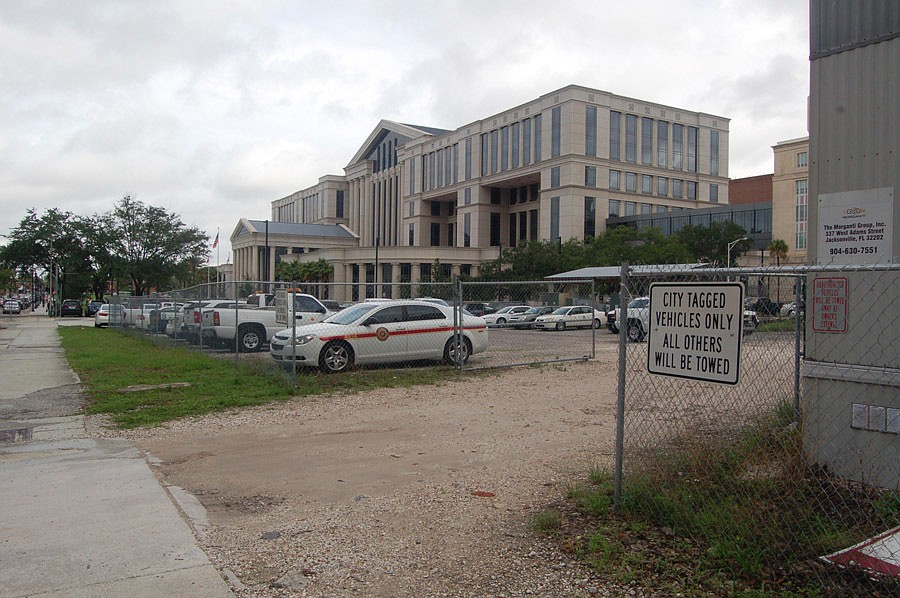
JEA wants to build a new Downtown campus on city-owned land near the Duval County Courthouse and proposes to swap it for its West Church Street site next to City Hall.
The DIA will consider approving the term sheet at 2 p.m. today when it meets in the Lynwood Roberts Room at City Hall.
JEA Chief Financial Officer Melissa Dykes presented details of the term sheet to the board Tuesday and said the plan made the most sense for both the utility and its customers
JEA had enlisted a consultant that looked at options that included renovating the 55-year-old building the utility owns at 21 W. Church St. Downtown.
JEA said the 19-story building is outdated, in disrepair and expensive to maintain. Elevators, plumbing, electrical, heating and air-conditioning systems need replacement, which Dykes said would be costly.
“Even if you look at renovating the spaces, you’re talking about having to maintain a building that’s substantially bigger than we need,” she said.
Dykes said the utility hasn’t started the design, but was seeking about 200,000 square feet of space. JEA’s current campus, comprising the tower and a customer care center, has 337,600 square feet of space.
“Between the two buildings we have at least 100,000 square feet too much,” she said.
Dykes said a benefit of the new site also is its proximity to other government buildings, like the Duval County Courthouse and the city’s Ed Ball Building.
“We think a move there would help to really solidify that government center portion of Downtown, and Downtown redevelopment overall,” Dykes said.
According to documents with the agenda, JEA wants to develop a 1.52-acre site, valued at $1.66 million, at 337 W. Adams St. near the courthouse.
The city uses the empty lot for parking.
In return, JEA would give the city its 1.84-acre West Church Street site. That property’s assessed value is $1.63 million. JEA bought the buildings in 1989 for $8 million.
JEA board Chair G. Alan Howard said he supports a move primarily because of employee efficiency, cost savings and Downtown revitalization.
“I think JEA staff spent a lot of time looking at what was most important to serve JEA and all its stakeholders,” Howard said. “I’m not sure I could rank any one of those reasons ahead of another. They’re all very important when considering a project like this.”
According to the term sheet, the facility would need to accommodate at least 750 employees with room for parking. It would include the customer care center and an emergency operations center.
The city and JEA also may negotiate the potential for an expanded parking garage at the new headquarters to provide additional parking for city employees.
Negotiations would begin within 60 days after both sides agreed to the terms, giving JEA another 270 days after that to study and test the property for suitability and development.
JEA could terminate the deal if it finds that the land isn’t suitable.
After that, if the land swap receives City Council approval, the city would have 30 days to transfer the site to JEA.
JEA would then have the next six months to either sell its West Church Street property and give the proceeds to the city, or tear down the buildings and transfer the land to the city.
Howard said he hasn’t had direct communication with Mayor Lenny Curry about the project, but is looking forward to negotiating with the city.
“I think we’ve got a very thorough and comprehensive term sheet,” he said. “We’re all on the same team here looking to achieve the same goals.”
According to an early timeline, construction could begin in April 2019, wrapping up by year-end 2020.
A report in January estimated the cost could range from $58 million to $78 million, although Dykes said that could change.
“Those estimates are based on index prices for cost-per-square-foot for commercial development,” Dykes said.
“As we get better information, we’ll talk to the board and the public about that,” she said.